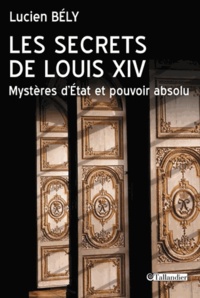Arlette Jouanna (Univ. Montpellier III), expert on the French Wars of Religion, published Le Pouvoir absolu: Naissance de l'imaginaire politique de la royauté ([L'esprit de la cité] Paris: Gallimard, 448 p.). The books deals with the tension between internal order (power) and royal legitimacy (justice). She argues that the possibility for the monarch to be legibus solutus and thus transgress laws binding upon all legal subjects, should be seen as an exception. Before the Wars of Religion (1562-1598, from Charles IX to Henry IV), rulers in France were bound by the law. Derogations were only exceptionally allowed, in cases of necessity. Moreover, even in those cases, the sovereign remained under the Empire of God and Reason. However, the break-up of the unity between the civitas Dei and secular society turned the King into the sole point of converging consensus amongst the confessions in France. The French way of constructing royal sovereignty was thus characterized by a total breach of the medieval intertwining of God and secular power. The "new prince" had a direct link or proximity with God, conferring a superior legitimacy to his will.
Lucien Bély (Univ. Paris-Sorbonne) published Les secrets de Louis XIV. Mystères d'Etat et pouvoir absolu ([Histoire moderne] Paris: Tallandier, 680 p.), a work on the secret operations of the Sun King. In many cases, Louis XIV bypassed legal procedure to impress the world with "coups de maître" (literally "masterstrokes"), "coups d'état" (spectacular acts of state, which would normally be illegal), used the "lettre de cachet" (royal document allowing for imprisonment without trial), manipulated political trials (e.g. Nicolas Fouquet's case), used elaborate espionage networks, ordered abductions abroad and extensively used both domestic and foreign intelligence. Bély extends the metaphor to the traditional realm of political secrecy in foreign affairs, and looks into the secret subvention treaty of Dover (1670) with Charles II of Britain or the secret partition treaty of the Spanish monarchy (1668) concluded with Emperor Leopold I.



No comments:
Post a Comment